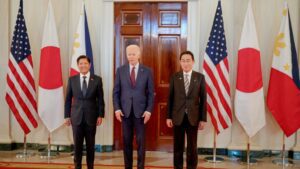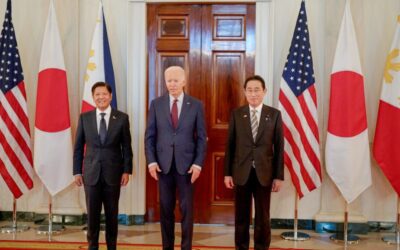Read Tatanda Ka Rin: Social Security for Lolo and Lola (Part 1)
So what is to be done? The P2,000 SSS pension hike is a start and the SSS unambiguously has the resources for this. The SSS Act of 1997 (Republic Act No. 8282) also authorizes the national government (NG) to appropriate the necessary funds for SSS expenses. But this should merely be the start of a far-reaching overhaul of the country’s pension system.
The government has to confront Philippine underdevelopment realities head-on and aim for a non-contributory tax-financed universal social security system. The “social” in “social security” means that society, through the government, should be assuming primary responsibility for the security of its most vulnerable citizens including the elderly. Contributory member-financed schemes such as SSS and GSIS should just be complementary measures to a central scheme designed to reach the majority of Filipinos.
The government already has something to work with: the Expanded Senior Citizens Act of 2010 or Republic Act No. 9994. Among the various benefits and privileges the law gives to senior citizens is a monthly stipend of P500 funded by the national government from its annual budget. The law can be amended to increase this amount – for instance to a minimum of P5,000 or more – and to expand the coverage to all Filipino senior citizens with only the barest minimum of requirements needed to establish eligibility. As much of the country’s 7.8 million elderly should be reached beginning with the poorest and most vulnerable among them.
The limited stipend to a few elderly today shows how far the scheme still has to go. The monthly P500 (about US$12) stipend reportedly reaches 12% of Filipinos over 60 years old. The equivalent scheme in Thailand covers 69% of Thai over 60 years old and gives them 600 baht or the equivalent of US$20 monthly. Indonesia’s and Malaysia’s schemes have much less coverage but respectively give US$32 and US$94 monthly. Brunei’s scheme with 82% coverage gives US$199 monthly.
As it is, the Philippine government only spends 0.04% of gross domestic product (GDP) on pensions for the elderly versus the 0.33% of GDP by the Thai government.
The government is so enthusiastic about public-private partnerships (PPP) that it is not unlikely for proposals to be made to privatize the country’s social security system. This is an undesirable path. Pension schemes were privatized across Latin America, Central Europe and Eastern Europe over the globalization decades 1980s to 2000s supposedly to ease the fiscal burden on governments and to improve efficiency. These privatizations failed though and there have already been partial or complete reversals in Chile, Uruguay, Argentina, Bolivia, Poland, Hungary, Russia and other countries.
Taxing the rich
Income security for all lolos and lolas is possible if the country’s political leadership so chooses. Creating a universal pension system is complex thing and has to consider demographics, risk, eligibility, machinery, and administration. But the biggest issue is where the financing for such a far-reaching overhaul of social protection for the elderly will come from. Again, Philippine realities point policy in a clear direction.
The Aquino administration already has considerable leeway from the improved fiscal situation under it that is has played up so much. The NG budget deficit is down from P314.5 billion in 2010 to just P46.5 billion in the first 11 months of 2015, corresponding to its declining share in GDP from 3.5% to just 0.3% over the same period.
The P268 billion reduction in the deficit between 2010 and 2015 represents the leeway for the government to subsidize the SSS pension hike. The additional P56 billion outlay needed for the P2,000 pension hike is well within this range, as well the supposed P16 to 26 billion deficit that the SSS will supposedly incur as its revenues fall short of expenses. The SSS had earlier reported to Congress just a P4 billion deficit.
This leeway is temporary though and more sustainable sources of financing are needed. For this to happen some deeply entrenched practices have to be corrected. The last decades of neoliberal globalization promoted capitalist values of individualism, self-interest, praise of wealth accumulation, admiration of affluence, and esteem of high incomes. Private property was disconnected from any sense of social function or social responsibility beyond voluntary charity.
Markets more efficiently concentrated wealth in the hands of a few at the expense of the many and a supportive liberal tax system was built. This has to be changed and the tax system made more progressive to raise resources for genuine social security.
As much as P409 billion in additional revenue can be raised from more aggressive collection of corporate income taxes especially from large corporations. IBON estimates up to P780 billion in potential tax revenues from firms in 2012 yet only P371 billion was actually collected by the Bureau of Internal Revenue (BIR). Restoring the corporate income tax to its 35% rate before 2009 would also immediately raise at least P20 to 30 billion.
Increasing taxes on just the richest 1.5% of Filipino families will not only raise some P91 billion but also reduce the extreme inequality in the country. The richest 156,000 or 0.7% of families had a cumulative income of P356.9 billion in 2012 with an average annual income of P2,287,836. Taxing just an additional 20% of this income will raise P71 billion. The next richest 170,000 or 0.8% of families had a cumulative income of P198.4 billion with an average annual income of P1,271,484. Taxing just an additional 10% of this income will raise P20 billion.
The country’s 100 to 150 super rich families have incomes of at least P50 to 500 million annually. Doubling income taxes on them could raise some P1 to 2 billion. More effective collection of estate taxes over time will also raise hundreds of billions in revenues. The BIR’s average annual collection of estate taxes of less than P600 million in the decade 2000 to 2009 compares poorly with, for instance, the P3.2 trillion in wealth accumulated today by just the 40 richest Filipinos.
Valuing our elderly
Old age pensions are vital for ensuring the income security and well-being of Filipino senior citizens. Only some two-fifths of our elderly receive pensions and only a small minority receive pensions big enough to lift them out of poverty. Ironically, those most in need of pensions are among those who get the least or none at all while those who have the least need receive the largest pensions. The gap has to filled in by non-contributory tax-financed pensions by a government unafraid to confront the country’s wealthiest families and biggest corporations.
The elections are nearing and how candidates propose to meet the challenge of ensuring the rights, dignity and income security of all Filipino senior citizens will give insight as to their underlying values. The stand they take will reveal much about their beliefs about the gross inequality in the country, wealth redistribution, and the crafting of an economic system more in line with the morality and ethics of human values.









0 Comments